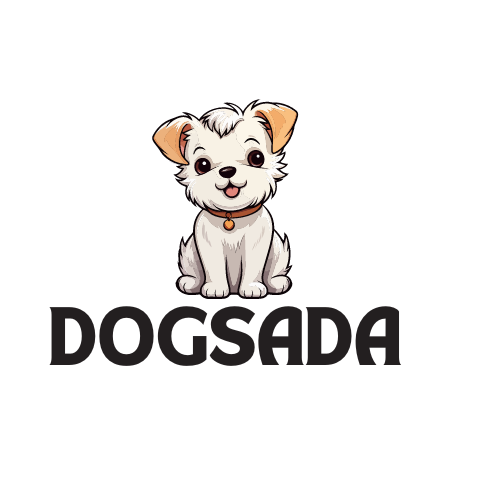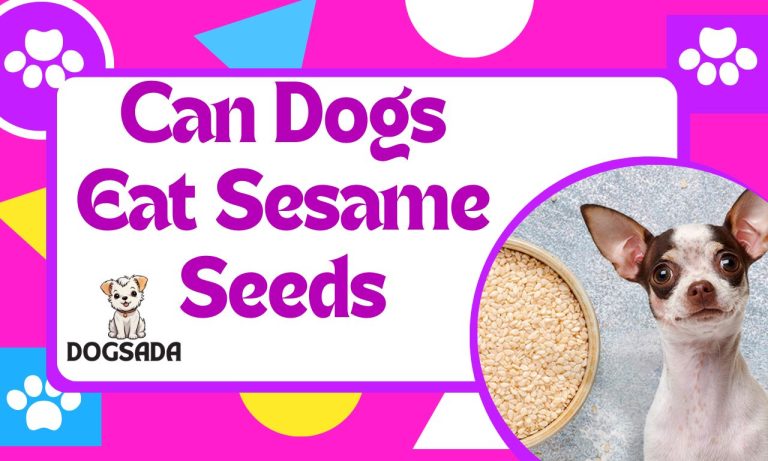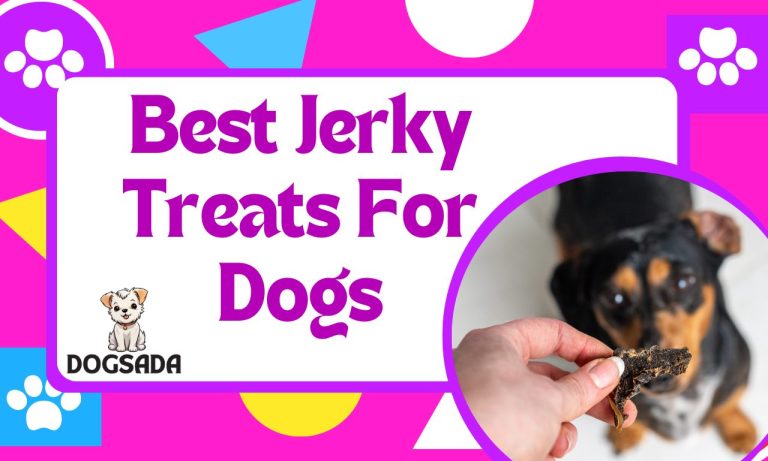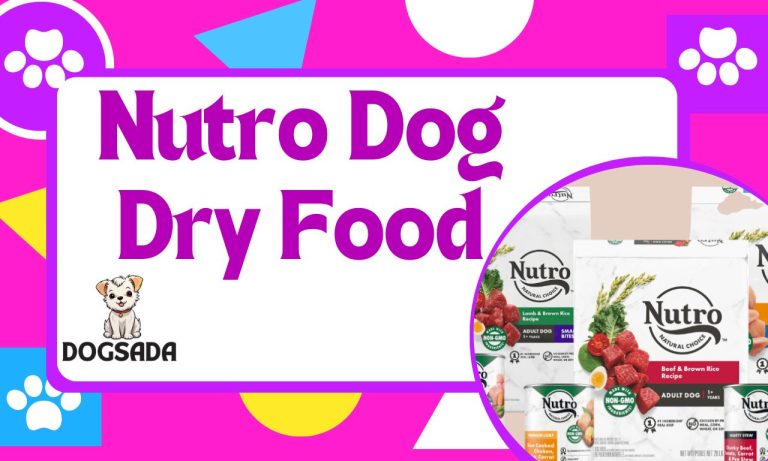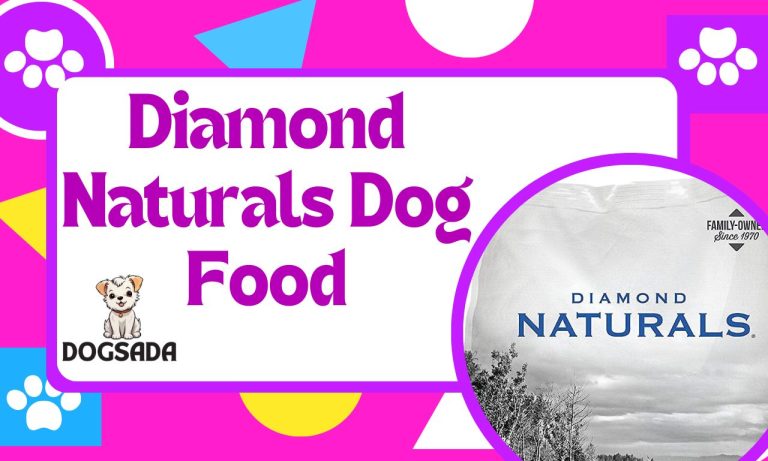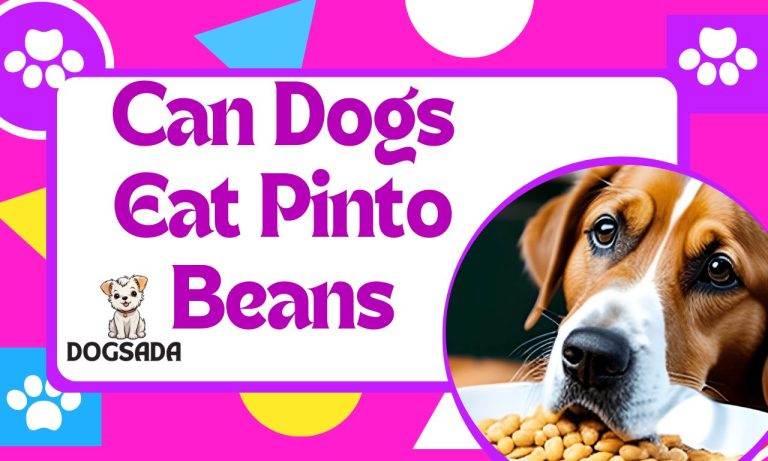In This blog post Can Dogs Eat Pumpernickel Bread?, Pets are lovely companions in life. These four-legged buddies become a part of our life and we treat them as family. All pet owners are in a constant hunt to provide their beloved pets with the best diet and prevent them from all sorts of harm.
We are here to help you in this journey to provide your pets with the best nutritional information so they can live healthy and happy lives.
As Bread is as staple in our diets many dog owners ask if is it safe to provide our dogs with bread, especially pumpernickel bread. Well, we have got you covered, Dive into the complete details of whether or not pumpkinkel bread can be fed to your dog.
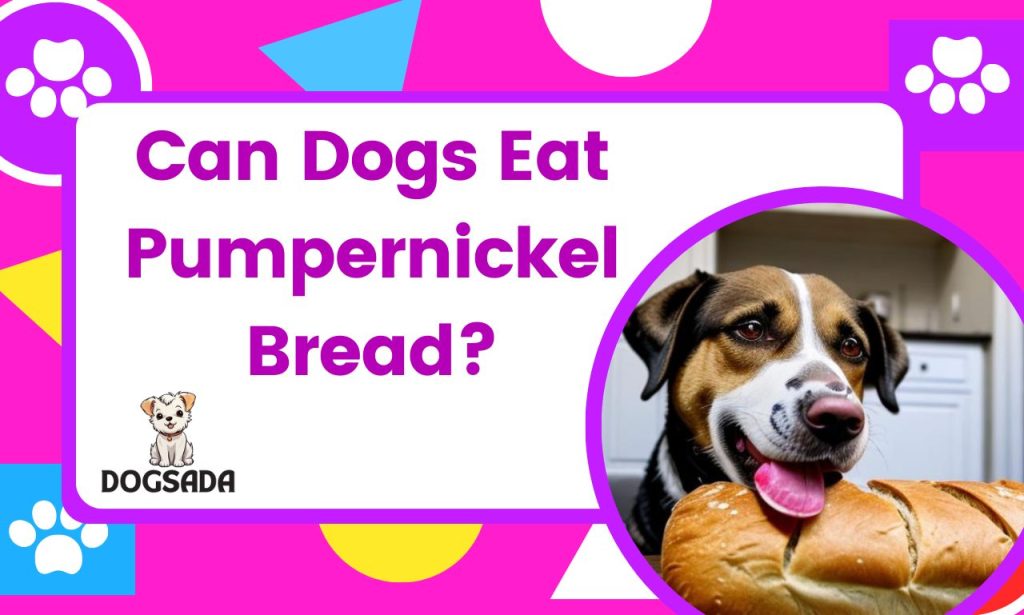
What is Pumpernickel Bread?
There are various types of Pumpernickel Bread but usually, they are made with coarsely ground rye flour. It is made by combining sourdough, rye flour, and whole rye grains including rye berries. The taste of this dough is slightly sweet with earthy tones to it. It is quite dense as compared to white bread or wheat bread.
Can Dogs Eat Pumpernickel Bread?
In general, bread is considered safe for dogs as long as it does not contain substances that can cause toxins in them. We will discuss these substances in the following sections. But the general rule is that all sorts of breads including pumpernickel bread are safe for dogs.
Pumpernickel Bread contains more nutrients as compared to other breads and it does not trigger the GI index which other breads do. Dogs can eat this bread safely as long as it does not contain toxins.
In case your dog has gluten or wheat allergies or is sensitive to breads we consider you to take medical advice from a professional. If your dog has an upset stomach or allergic reaction after the consumption of the breads please take it to medical health care immediately.
How to Feed Your Dog Pumpernickel Bread?
Feeding your dog bread on a regular basis can cause them to become overweight and have nutritional imbalances as all bread but especially pumpernickel bread has empty calories meaning that it is not high in nutritional value. Bread should not replace the portion of the dog’s regular diet.
Dogs can develop diabetes and heart diseases if overfed with bread on a regular. High-carb diets are usually nutrient-deficient.
In some dogs, it has been observed that due to gluten sensitivity, they develop digestion issues which include bloating, gas, and discomfort in general
In some cases, it can also cause toxicity to your dogs if your bread contains toxins or is undercooked. This causes excessive bloating, allergic reactions, and some serious emergency situations.
Our Feeding Advice
We advise you the following tips to ensure you do not end up in emergency situations:
- Always check your bread is free from dog toxins
- Ensure your bread is completely cooked
- Start feeding your dogs small pieces of bread to check gluten sensitivity and allergies.
- Add nutrients into your dog’s diet when giving bread as it contains empty calories.
- When feeding bread make sure your dog is involved in physical activities to avoid obesity
Harmful Ingredients for Dogs in Pumpernickel Bread
Make sure NOT to include these ingredients in your pumpernickel bread:
Xylitol:
This ingredient is considered a major dog toxin. If it is consumed even in the slightest amount it causes the blood sugar to drop massively. In other cases, it has been observed to cause liver failure, seizures, and even death in some cases.
Chocolate:
Chocolate is also considered a major NO in dogs’ world as the ingredients in it include theobromine and caffeine which are known as dog poisons. In several cases, it has been seen dogs who consumed bread with chocolate were to suffer from muscle tremors and seizures.
Garlic:
Garlic has been reported to destroy RBCs in dogs causing anemia, abdominal pain, diarrhea, and in extreme cases the dog collapses completely. We advise you to strictly keep away from these ingredients,
Raisins:
Raisins are a dog poison too as from research and cases seen to have reported kidney failures.
Seeds and Nuts:
Nuts including Macadamia nuts, Black walnuts, Old and moldy walnuts, Raw Cashews, and Pistachios are toxic to dogs.
Seeds including pumpkin seeds, sesame seeds, sunflower seeds, flax seeds, and apple seeds are toxic to dogs.
Caraway seeds:
Caraway seeds are important to look out for as they are commonly used in pumpernickel bread and can severely harm dogs when they are consumed regularly or in large quantities. The side effects include liver damage, kidney failure, and sudden drop in GI which is a serious harm to health.
Onions:
Whether it be cats or dogs onions are considered a major poison for them. These ingredients cause RBC destruction which leads to numerous blood issues including anemia.
Good Ingredients in Pumpernickel Bread for Dogs
Rich in Fiber:
It has been found that pumpernickel bread is rich in fiber which is beneficial for dogs who suffer from constipation or want to lose some weight.
Nutrients:
Pumpernickel bread contains vit B, magnesium, and some minerals which is good for the overall health of your dog but keep in mind it is available in low quantities can cannot provide or reach the daily surplus required alone
Low Fat and Low Glucose Bread:
We see how traditional breads are loaded with sugars but pumpernickel bread is low in fat and in sugar as well. It is considered a great option for dogs with obesity but keep in mind not to overfeed your dog with this bread as it will not help in the overall weight reduction then.
Conclusion
In conclusion, we recommend that you feed your dogs only in small quantities preferably as a treat. According to health care supervisors it is recommended that bread shall not exceed more than 10% of your dog’s diet due to the fact it contains empty calories and is not as highly nutritional on its own.
It can be incorporated into a highly nutritional diet diet of your dog. In the end, we advise you that dogs are different from humans and so are their diets. In order to provide your dog with a healthy diet please consult a vet and look out for all possible toxins mentioned above in your dog’s diet.
